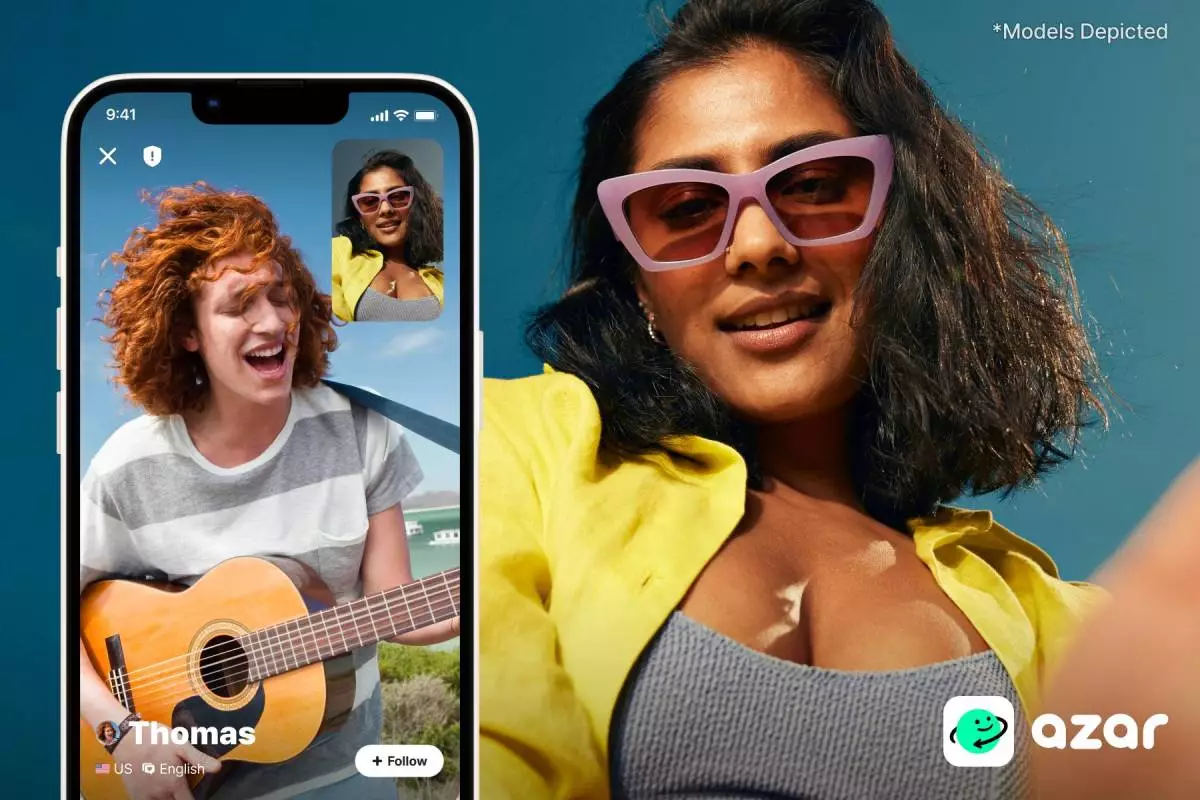In an era dominated by virtual interactions, video chat technology has revolutionized how people connect globally. Azar, an innovative app developed by Hyperconnect, has already surpassed 100 billion video chats, showcasing its potential to foster connections among strangers across the globe. However, the app has only recently set its sights on the U.S. market, a territory fraught with challenges and stiff competition.
Historically, the random video chat space has garnered a mixed reputation. Platforms like Omegle and Chatroulette, once popular among users craving spontaneity, became infamous for their inappropriate content and unmoderated environments. Such experiences often deterred new users, particularly among older generations who experienced the internet’s early, chaotic days. With this background, Azar faces the uphill task of changing the narrative surrounding video chat apps while appealing to a generation that has matured amid digital chaos.
The landscape of users is changing radically, with Gen Z at the forefront of Azar’s strategy. This younger demographic, characterized by their comfort with technology and social media, appears less jaded by past random video chat failures. CEO Linda Kim recognizes this shift, acknowledging that many Gen Z users lack direct memories of the negative experiences associated with previous platforms. As such, they come to Azar with curiosity rather than skepticism.
Azar’s proactive approach to user safety sets it apart from its predecessors. By integrating a combination of AI-driven moderation and human oversight, the platform aims to protect its users from non-consensual content, a concern highlighted by Kim in various interviews. The introduction of automated systems to monitor interactions serves as a significant step in ensuring a safe environment, where users can engage without the fear of inappropriate behavior.
Despite being a subsidiary of Match Group, which oversees some of the world’s most recognized dating apps, Azar does not explicitly market itself as a dating platform. This opens up possibilities for users seeking a variety of interactions—be it sharing travel tips or forming friendships across cultural divides. The application is free to use, with premium features available for those desiring greater control over their matches, such as selecting conversation partners based on location or gender.
Azar’s design philosophy embraces inclusivity, allowing users to communicate even with language barriers through automatic translation features. The app subtly caters to a social exchange beyond mere dating, resonating with Gen Z’s desire for authentic, meaningful connections in an increasingly disconnected world.
What makes Azar compelling is its focus on real-time interaction. Kim, who brought a wealth of experience from Apple and Zynga, leverages her industry background to foster a connection-driven platform. She even engages with the app herself, blending executive oversight with genuine user experiences. By disguising her CEO identity, she navigates Azar as any other user, collecting insights that shape future developments.
However, the fear of vulnerability remains. Many potential users still find the prospect of random video chats intimidating. To mitigate this, Azar incorporates augmented reality features that allow users to mask their faces. While this adds an element of fun and security, it does not eliminate the discomfort that comes with interacting with strangers online. Anecdotal experiences, such as being humorously dismissed while using a filter, underline the complexities of modern digital communication.
As Azar positions itself to enter the competitive U.S. market, the focus on safety will be pivotal to its acceptance. Kim remains adamant that the platform prioritizes user well-being, stating that the commitment to fostering a secure environment is foundational to the company’s mission. Navigating safety concerns while building a vibrant user community will undoubtedly challenge the app but could ultimately pave the way for its success in the U.S.
Azar stands at the precipice of redefining random video chatting, especially for a generation that craves new forms of connection. By prioritizing user safety, embracing cultural nuances, and fostering authentic interactions, this innovative platform may yet carve out a meaningful space amidst skepticism and historical pitfalls. The quest for genuine connection continues, and Azar is poised to lead the way through the unpredictable waters of social engagement.

